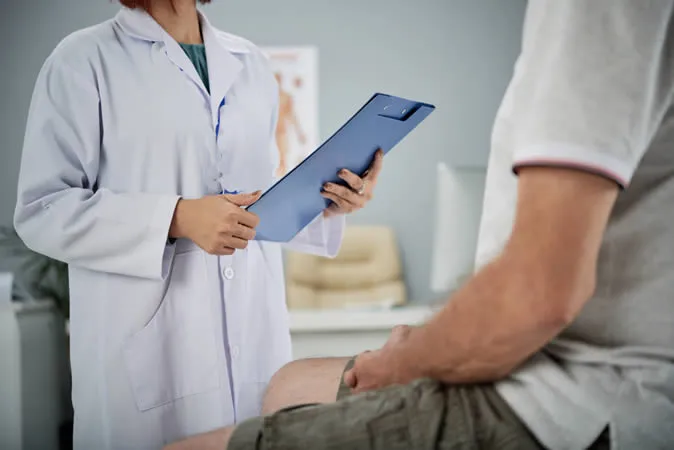Erythema Nodosum

What is Erythema Nodosum?
Erythema nodosum is a type of inflammation of the fat cells under the skin that causes tender red nodules or lumps, usually on the shins. It can be caused by various conditions, such as infections, drugs, autoimmune disorders, or pregnancy.

What are the signs and symptoms of Erythema Nodosum?
The signs and symptoms of erythema nodosum are:
- Red, painful, and warm bumps on the skin, usually on the lower part of the legs. The bumps can also appear on other parts of the body, such as the thighs, arms, torso, and face.
- The bumps are about one-half inch to 4 inches in size and can range from two to 50 in number.
- The bumps start out red and then turn purple, looking like bruises as they heal. They also flatten out while healing.
- The bumps can last for two weeks and new bumps can keep forming for up to six weeks.
- Other symptoms may include fever, fatigue, joint pain, pain in the legs, ankle swelling, enlarged lymph nodes in the chest, cough, sore throat, weight loss, stomach pain, and diarrhea.
What are the causes of Erythema Nodosum?
The exact cause of erythema nodosum is unknown, but many cases occur in reaction to an infection, an underlying condition or a medication. Some cases of erythema nodosum are idiopathic, which means an underlying cause is never identified
Some of the common causes of erythema nodosum are:
- Throat infections (streptococcal disease or viral infection)
- Tuberculosis
- Hepatitis B
- Inflammatory bowel disease (ulcerative colitis or Crohn disease)
- Sarcoidosis
- A reaction to some medicines, such as sulfonamides, oral contraceptives, non-steroidal anti-inflammatory drugs, and iodides
- Pregnancy
What treatments are available at the dermatologist for Erythema Nodosum?
Some possible treatments for erythema nodosum that a dermatologist can offer are:
- Anti-inflammatory drugs, such as ibuprofen, naproxen, or indomethacin, to reduce pain and swelling.
- Corticosteroids, either by mouth or injection, to suppress the immune system and inflammation.
- Colchicine, a drug that can reduce inflammation by interfering with the formation of crystals in the skin.
- Potassium iodide, a solution that can help some cases of erythema nodosum by unknown mechanisms.
- Other treatments that target the underlying cause of erythema nodosum, such as antibiotics for infections, immunosuppressants for autoimmune disorders, or discontinuation of the offending medication.

What is the most common infectious cause of Erythema Nodosum in children?
The most common infectious cause of erythema nodosum in children is streptococcal infection. This is a type of bacterial infection that can affect the throat, skin, or other parts of the body. Streptococcal infection can trigger an immune response that leads to inflammation of the fat cells under the skin, resulting in erythema nodosum.
FAQ About Erythema Nodosum
How is erythema nodosum diagnosed?
A biopsy (removal of tissue for exam under a microscope) of a bump can usually confirm the diagnosis. The biopsy is done along with complete lab work. However, the exact cause cannot always be identified. Erythema nodosum caused by medicine can usually be diagnosed by elimination of the medicine causing the reaction.
Who is at risk of developing erythema nodosum?
Erythema nodosum can affect anyone at any age, but it most often affects women and people assigned female at birth between the ages of 20 and 30.
Is erythema nodosum contagious?
No, erythema nodosum is not contagious. It is not an infection itself, but a reaction to an infection, a condition, or a medication. You cannot catch or spread erythema nodosum from another person.
Is erythema nodosum hereditary?
No, erythema nodosum is not hereditary. It is not a genetic disorder, but a response to an external or internal trigger. However, some people may have a genetic predisposition to develop erythema nodosum due to their immune system or their susceptibility to certain conditions or medications.
Is there a dermatologist near me in cityName that offers treatment for Erythema Nodosum?
Yes. At our cityName dermatology office we offer treatment for Erythema Nodosum to patients from cityName and the surrounding area. Contact our office today to schedule an appointment.
